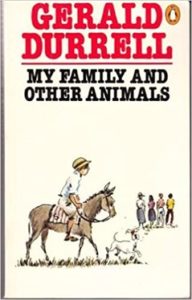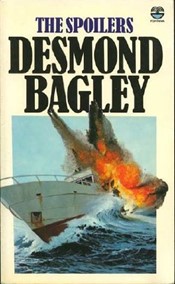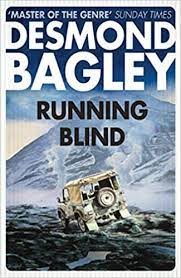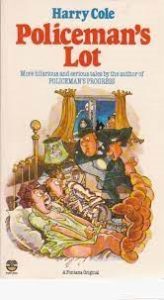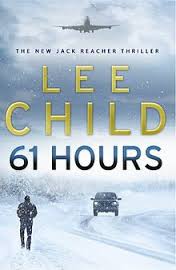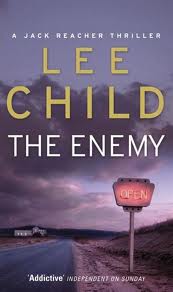Heather Martin and The Reacher Guy
For the first time in a very long time I am delighted to be able to share an interview here at Grab This Book.
Heather Martin is author of The Reacher Guy: The Authorised Biography of Lee Child. I reviewed the audiobook of The Reacher Guy (here) and found it to be an engrossing account of an author I have read for years; but actually knew very little about. As TRG has recently released in paperback I was delighted when Heather agreed to chat with me about writing Lee’s biography and I finally got to satisfy my curiosity about how she got accurate answers out of a natural storyteller.
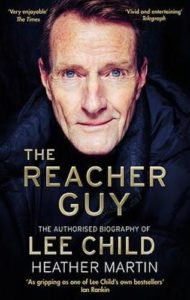 Before you met Lee Child and discussed writing about his life I am assuming there was an earlier moment where Jack Reacher first crossed your path. Where did your personal “Lee Child” journey begin?
Before you met Lee Child and discussed writing about his life I am assuming there was an earlier moment where Jack Reacher first crossed your path. Where did your personal “Lee Child” journey begin?
They say you remember your first time, but I don’t really. I was in Cambridge. It must have been about ten years before I met Lee Child – One Shot, perhaps, which came out in 2005, so before his first New York Times no. 1 in 2008, before he became a household name, but around the time Tom Cruise signed on and things started getting huge. But one thing’s for sure: Reacher turned up just when I needed him. Doesn’t he always? What’s weird is he kept coming back, not like in book world – twenty-four times I think it was. But I was OK with that. And I do remember where it all started – in the bedroom. I pulled a book off the shelf and hopped into bed and well, let’s just say I didn’t sleep much that night.
I should add that during this period of innocence the name ‘Lee Child’ meant nothing more to me than the guarantee of a good read.
I had somehow imagined you would have been there from the start. Reacher is one of the few series which I caught early. I was there from Killing Floor and utterly hooked. How I wish I had kept my original copies of the early books (and my Star Wars collection too).
So, if 2005 was when you first encountered Reacher and it was ten years before you met Lee, where did you finally get to meet the man himself?
I wish you had too! The thing about the Reacher books is they’re equally addictive no matter where you jump in. The damage is done on page one. Another confession: I wasn’t one who waited on the release date, not at least until I met Lee, and then only because I was curious about the man. But he would never have allowed me to write the biography had I been a classic superfan – it’s in his nature to prefer a degree of scepticism.
We met over dinner at the old Union Square Café on Manhattan’s East 16th St in the summer of 2015. There were seven of us in total. Lee arrived last and folded himself into the last remaining chair, on my left. He was a little cramped. He surveyed the general scene and said: ‘you should have mentioned my name and we would have got the best table in the house’. Nevertheless we soldiered on. He’d been to the dentist that day and was feeling a little delicate; he drank champagne and had profiteroles for dessert. He lamented the loss of the Labour Party’s original clause IV. Afterwards, one of our group, a brilliant young woman who worked as a parliamentary assistant to Harriet Harman, said she wished he would run for leadership of the party.
A lucky escape for Lee then as if he HAD run for parliament his popularity would have taken an overnight hammering.
Was that the dinner where the prospect of writing Lee’s biography was first discussed? How do you get from “pass the breadsticks” to “can I write about your life?”
And because I am curious – did you know Lee would be there before the meal? Either way I have always thought it to be very cool.
He was wise to that risk I’m sure. Later he said that if he was made king of the world the first thing he’d do would be abdicate – too much responsibility.
No mention of biographies, but we got on well and no doubt the seed was sown. We’d already had some correspondence about the Spanish translation of one of his later novels, which I’d critiqued at his request. So yes, I knew he would be there. Our conversation had already begun. After The Reacher Guy was published, Lee told an interviewer for BBC Radio Sheffield it was my commentary on that translation that made him take me seriously as a prospective biographer, because he felt I understood what mattered to him in his writing, what was important. And because I wasn’t afraid to say what I thought. By that point in his career that perhaps wasn’t so common.
It seems you had established a good relationship with Lee before the biography gained traction. Obviously there came a point where you agreed you would write about his life? I am keen to know where you went from that conversation, where do you start?
Yes, we were already friends. I first heard him speak publicly in 2016 in Cambridge, at the Literary Festival, then Oxford, at the St Hilda’s Crime Conference, in what he affectionately refers to as his ‘establishment year’, when he was also in demand as an essayist from the New Yorker and the New York Times. That was the year in which he was first picked up by the London Review of Books and the TLS. As you know, he’s an enthralling speaker, as good at spinning a historical tale as a thriller. Presumably it was the academic in me, but I found myself taking notes.
I made the effort to catch up with Lee at festivals and then committed to a couple of short stays in New York so I would have more opportunity to work through my seemingly endless questions. As I’ve said before, the biography arose organically out of a long conversation, and there came a point where we both agreed we thought we could make it work. In between times I covered the obvious bases: I visited the places where he’d lived and worked; I tracked down old friends, teachers and colleagues; I reread all the books, and trawled through the mostly very similar interviews online and on paper, sifting through the evidence and trying gently to separate the man from his persona. Eventually I got access to the archive, which Lee donated to the British Archive for Contemporary Writing at the University of East Anglia in 2018, in advance of his semi-planned retirement. I had most of the first draft done by then, but I think that turned out well for me, because it meant I knew what I was looking for, but also that when I stumbled across something I didn’t know I was looking for it tended to jump out and grab my attention. I loved those weeks, altogether months in the archive – so absorbing, so revealing, both tranquil and exciting.
Lee is certainly an engaging speaker so I can imagine listening to him at numerous events must have been fascinating. But if he was also promoting the latest book then possibly some repetition would creep in?
That thought leads me towards something I had wondered about as I read TRG. You often reference his habit of adapting or elaborating on facts. It seemed there was Lee’s version of events and everyone else’s version. Did you see anecdotes being told and tweaked at different events and how does that impact upon a biographer who is trying to nail down facts?
And that was a highlight of reading TRG, at times you almost sounded vexed with his recounting of events which others would “amend”.
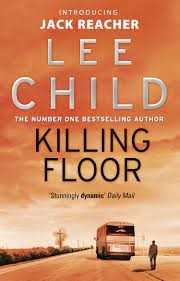 Such a good question. The repetition itself was interesting, of course. What made him return to those same themes, what made him reach for the same stories? Did it come from within or without? The reasons are many. Some of it was reactive, and over time, as an essentially shy man, he perfected his public persona. But he also refined his thinking around those topics that preoccupy him most deeply: the nature and purpose of fiction, the nature of humanity (which has no purpose), the transaction between reader and writer. I believe he enjoyed that learning process, which is what makes him such a compelling essayist.
Such a good question. The repetition itself was interesting, of course. What made him return to those same themes, what made him reach for the same stories? Did it come from within or without? The reasons are many. Some of it was reactive, and over time, as an essentially shy man, he perfected his public persona. But he also refined his thinking around those topics that preoccupy him most deeply: the nature and purpose of fiction, the nature of humanity (which has no purpose), the transaction between reader and writer. I believe he enjoyed that learning process, which is what makes him such a compelling essayist.
Where you have repetition, variation is also built in. Some of that repetition was willed, some of it unconscious. To an extent it was pragmatic, his performance tailored to suit the time slot allocated, a skill he’d acquired during his years at Granada Television. If he was talking about the distant past – his early childhood, for instance – then by definition he was dealing in stories that had been handed down by parents and grandparents; if he was talking about the present, there was the Reacher brand – and publisher expectation – to consider. Lee was relaxed about it. Nothing he said ever seemed to him contradictory; his brain could reconcile all the angles. He sees all writing as storytelling, and storytelling as among the most ancient of human habits, long preceding the advent of writing, and in tracing the evolution of fiction homes in on the way writers adapt humanity’s best-loved stories to the needs and desires of new audiences. I think this is one of the main reasons he’s a one-draft writer: that’s just how he told the archetypal story that year – he couldn’t go back and change it.
For the biographer it’s all grist to the mill. Sometimes I would quiz him about the discrepancies between his recollections and those of others. But rather than being daunted by the vagaries of point of view and memory – which I increasingly acknowledged as a condition of the enterprise – I found them liberating. Both Lee and I were aiming for a truthful account, but we both knew it could only ever be an approximation, so then it became more about authenticity, on both sides. I never saw it as my job to pin him down in the manner of a lepidopterist. I don’t like sticking pins in things. I always expected him to elude me, just as Reacher always eludes the reader in the end, and each of us eludes the other. I hope this is something I managed to bring out in the biography, in the later chapters especially, but also in those on the mother figure, and death.
I would like to pull you back to the writing process and how you took on the challenge of capturing a lifetime. It sounds like you had several conversations with Lee and you hit the books and the archives. Did you tackle your research chronologically and try to work from his childhood or perhaps you worked back from when the books were releasing (when I imagine information became more plentiful)?
One thing which did strike me – in the early part of the book he is Jim/James but by the end he is very much Lee. You tell two stories. Is he Jim or Lee to you now?
Many conversations, over years, and a long correspondence too. My approach was less chronological than thematic, and intuitive. Lee would say things; questions would lead to more questions. He told me about his grandparents, and on the Irish side that led back to his great-grandparents. There’d be an anecdote about his father, then gradually we’d fill in the bigger picture. It took longer to get him to talk about his mother. And I only really made significant progress on the school, university and Granada years, when I was able to go back to him with the memories of others. There was a vast amount of information in circulation about his career, a lot of it misleading or erroneous. What I found hardest to work with, ironically, were Lee’s own introductions to special editions of his books: it was difficult to shake off his words.
When it came to the writing, I tried not to contemplate the enormity of the task, or indeed the temerity. I simply started at the beginning, relying on a particular image, moment, concept or theme to steer me through. Amazingly, it seemed to work, and I grew to trust my own instincts. I liked the idea of each chapter being a self-contained story, which I thought might suit the reader too.
Lee would always say to me, and to others, ‘a book has to have a beating heart’. So while I approached the subject with due seriousness, it was mostly, in the end, a feeling thing.
His books were always there and so too his fame. Which I suppose is the beginning of an answer to your second question. I met Lee as Lee, and he’ll always be Lee to me. But it was Jack Reacher I got to know first, so he was there from the start. Jim Grant was the one I knew nothing about. I barely even knew he existed. But what I discovered as I got to know Jim Grant, which I did, to the point where I was comfortable referring to Lee by his given name as necessary and appropriate, was that Reacher had been there from the start for him as well. Not named, not explicitly formulated, but as the archetypal fictional hero, a source of comfort and hope in a miserable childhood, and a fantasy alter ego too. Reacher saved Jim, thanks to Lee Child.
 That’s quite a thought, that before we got to read about Margrave in Killing Floor Reacher had already saved Jim Grant. A ripple effect though, the stone had hit the loch but the ripples would take some time to reach the shore (and Jim/Lee’s future would be secured).
That’s quite a thought, that before we got to read about Margrave in Killing Floor Reacher had already saved Jim Grant. A ripple effect though, the stone had hit the loch but the ripples would take some time to reach the shore (and Jim/Lee’s future would be secured). The Reacher Guy is published by Little, Brown Group and is now available in paperback, digital format and as an audiobook (narrated wonderfully by Juliet Stevenson. You can order a copy here: https://www.waterstones.com/book/the-reacher-guy/heather-martin/9781472134233 or from any independent bookseller.

